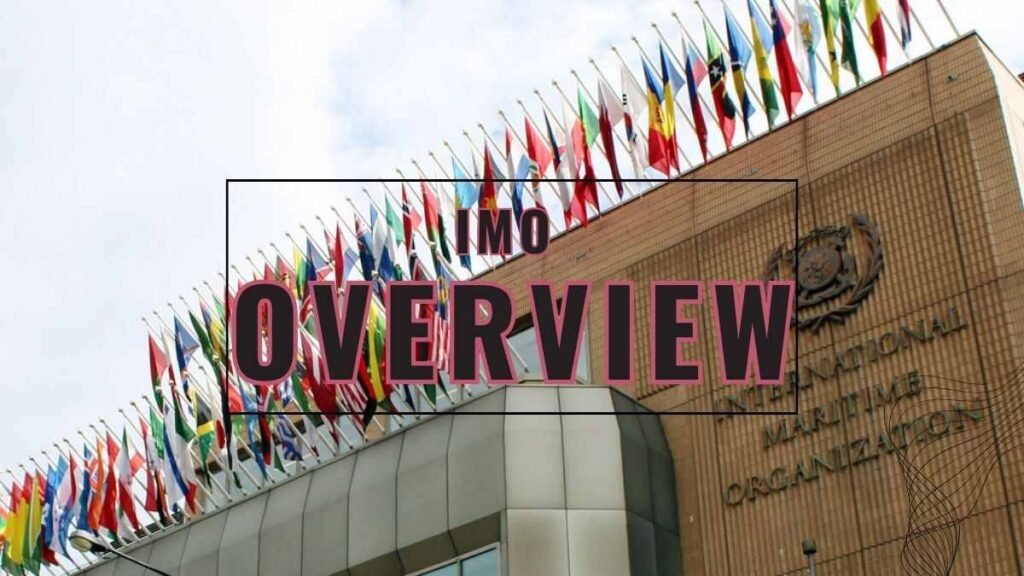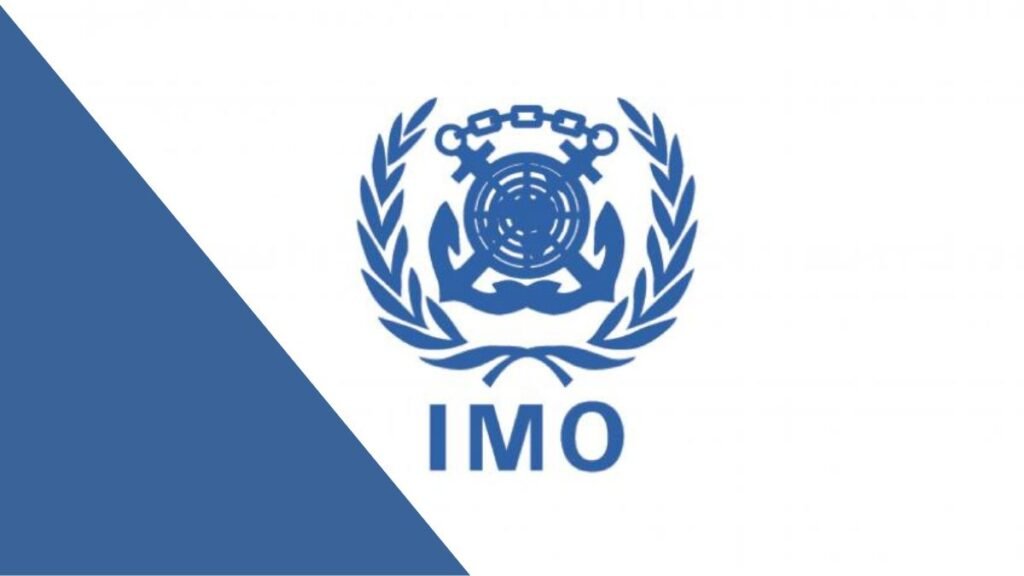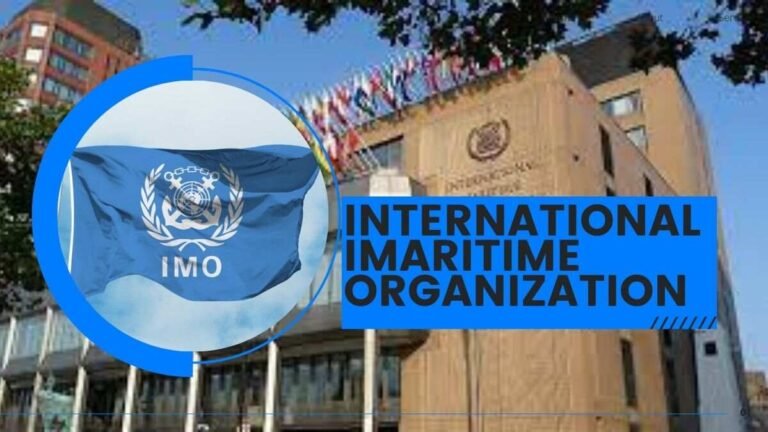The International Maritime Organisation (IMO) is a specialised UN organisation in charge of developing policies to enhance international shipping’s safety and security and stop ship-related marine pollution. International maritime safety and security are governed by IMO norms. It is in charge of overseeing all aspects of international shipping rules, including the law, ship construction, and cargo dimensions.
The International Maritime Organisation (IMO): An Overview

The mission of the International Maritime Organisation is best encapsulated in its motto, “Safe, secure, and efficient shipping on clean oceans.” In essence, establishes guidelines for safe, secure, and environmentally friendly shipping practises. The IMO is also active in facilitating international maritime transportation as well as legal concerns related to international shipping, such as those involving liability and compensation. Every two years, the Assembly, the IMO’s governing body, convenes to discuss international shipping-related matters and to review the organization’s spending plan.
There are five committees entrusted with formulating policies and developing, reviewing, and updating regulations and guidelines in order to divide the workload and guarantee that each area of concern of the IMO is receiving the attention it needs. The Technical Co-operation Committee, Maritime Safety Committee, Marine Environmental Protection Committee, Legal Committee, and Facilitation Committee are some of those committees. Additionally, these committees are supported by seven subcommittees.
Some of the most important International Maritime Organisation treaties include the International Convention for the Safety of Life at Sea (SOLAS), the International Convention on Standards of Training, Certification, and Watchkeeping for Seafarers (STCW), and the International Convention for the Prevention of Pollution from Ships (MARPOL).
The International Maritime Organization’s member nations and organizations
With 175 members, the IMO makes up the majority of the United Nations membership. In addition, Hong Kong, Macao, and the Faroe Islands are associate members but not actual states. Additionally, the IMO often discusses maritime policy with intergovernmental and non-governmental organisations (NGOs). 66 intergovernmental organisations, including OPEC, the Organisation of American States, and the Council of Europe, have observer status with the IMO. 85 NGOs with consultative status are also present; the majority of them are connected to the maritime or shipping sectors.
Structure of the International Maritime Organisation (IMO)
The Assembly, which represents the member states, and the Council, who are chosen by the members every two years, make up the IMO’s governance structures. When the Assembly is not in session, the council serves as an executive body and handles all of its duties. The Council is also in charge of choosing the organization’s secretary-general. Additionally, a number of committees and subcommittees are in charge of different facets of marine legislation. To prevent risks on the waters, the Marine Safety Committee, for instance, is in charge of establishing the regulations for construction, transit, and navigation. Pollution-related issues are handled by the Marine Environmental Protection Committee, while legal issues pertaining to maritime law are handled by the Legal Committee.
The International Maritime Organization’s (IMO) strategic plan

The IMO assembly established a strategic plan that outlined the organization’s goals and objectives every six years. “To promote safe, secure, environmentally sound, efficient, and sustainable shipping through cooperation,” reads the current strategic plan, which was adopted in 2018. The strategy also outlines the IMO’s strategic direction and creates performance indicators to gauge how well the organisation is doing its job. The current strategy plan includes addressing climate change in addition to the usual objectives of promoting trade and ocean governance. The IMO promises in its vision statement to assist member nations in carrying out the 2030 Agenda for Sustainable Development.
It’s crucial to remember that the they does not enforce or apply policies. The IMO was established to adopt policy rather than impose it. Any IMO convention that is ratified by a government becomes a national law that the government is in charge of executing. A programme to audit adherence to maritime regulations was created by the organization and went into effect in January 2016. If a nation disregards the rules established by the IMO, there are no possible remedies. The IMO instead offers commentary and guidance on a country’s present performance.
An IMO is a non-shipping organisation that also engages in independent marketing. This company markets its products by collaborating with insurance providers. Other marketing functions, such as distribution, may be part of an IMO’s responsibilities.
Activities of IMO
The primary issues that the International Maritime Organisation has been able to address through regulation include the prevention of accidents, the establishment of safety standards for ships and other vessels (including design and materials), the maintenance of adherence to the established treaties of safety and security, the prevention of pollution and other preventable human catastrophes, and the prevention of accidents.
Along with establishing a framework for these norms and standards to be scrutinised and monitored, IMO also makes it easier for member states to cooperate technically. It also keeps an eye on financial obligations and compensation in the event that any of these rules are broken. As a result, the International Maritime Organisation is essential to the development of a better and healthy economic and transportation environment in contemporary society.
IMO Events and Awards
A number of events and awards are also organised by the worldwide maritime group to raise awareness of the marine industry and to honour those who have made major contributions. The following are some of the major IMO (International Maritime Organisation) occasions and honours:
- World Maritime Day
- Day of the Seafarer
- IMO Awards – Award for exceptional bravery at sea and the international maritime prize
- IMO Ministerial Conference
- Women, Ports and Facilitation
Conclusion
The majority of global trade is transported by shipping, which also transports millions of cruise passengers and ferry passengers to their destinations. More than 50,000 seagoing ships transport more than 10 billion tonnes of essential and desirable cargoes every year, including raw materials, consumer goods, fuel, and various commodities.
The International Maritime Organisation (IMO) is a key player in achieving the objectives outlined in United Nations Sustainable Development Goal (SDG) 14: “Improve the safety, security, and sustainability of international shipping and prevent pollution from ships.” Use marine resources wisely and sustainably to promote sustainable development.
FAQs About IMO
As a specialist organisation of the United Nations, IMO works to advance efficient, effective, safe, and sustainable shipping practises around the globe.
International Convention on Standards of Training, Certification, and Watchkeeping for Seafarers (STCW), International Convention for the Prevention of Pollution from Ships (MARPOL), and Maritime Labour Convention (MLC) are the four pillars of the IMO.
The IMO is ruled by a membership assembly. A member council chosen from the assembly is responsible for managing its finances as well. In addition to various technical subcommittees, it has five committees.
The IMO, with its headquarters in London, United Kingdom, has 175 member countries. Associate members of the IMO are Hong Kong, China; Macau, China; and the Faroe Islands.
The UN’s IMO, formerly known as the Inter-governmental marine Consultative Organisation, was established to manage the marine sector by issuing rules, regulations, and guidelines. Additionally, it highlights many international conventions and other maritime safety measures. It opposes discriminatory business practises worldwide.

